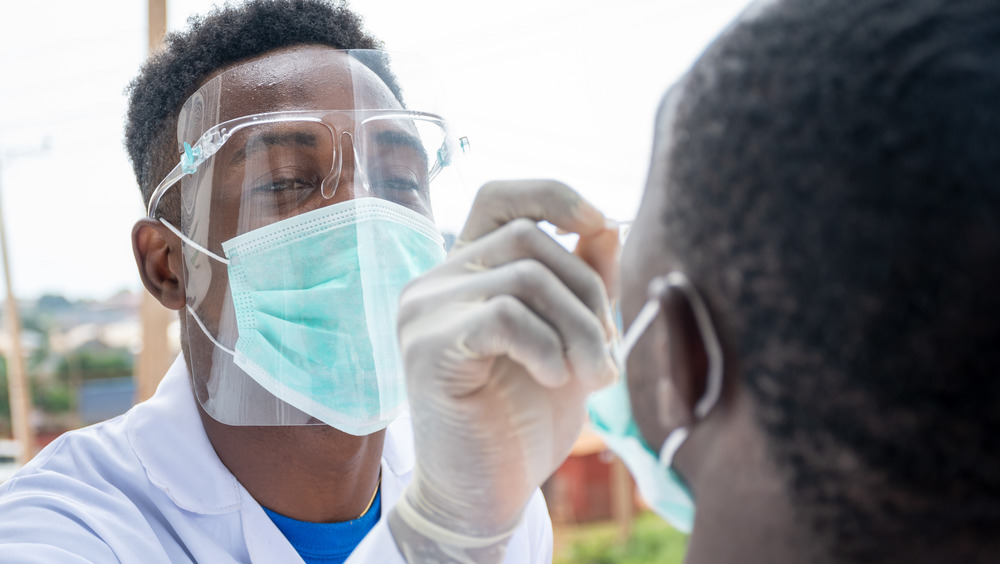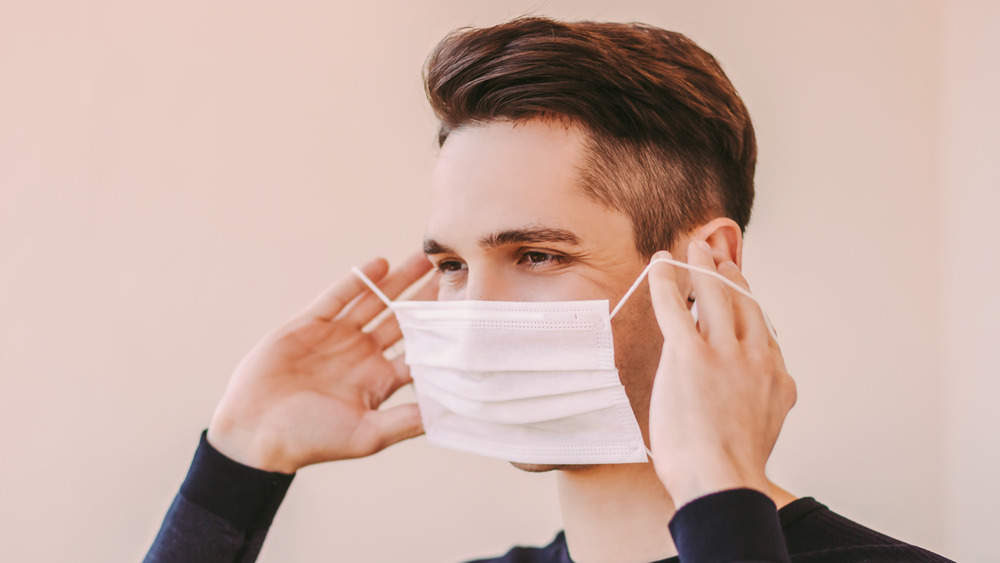Why You Should Still Get Tested For COVID-19 After Getting The Vaccine
As the rate of people vaccinated against COVID-19 increases around the world, it may feel tempting to become more complacent about getting tested for the infection. Testing rates are expected to drop as infection rates fall, but a disproportionate decrease could indicate that people aren't taking testing as seriously as they should. But the risk for infection is still present and forgoing testing even when it's recommended could be disastrous.
The most common symptoms of those infected with the SARS-CoV-2 virus include fever, congestion, cough, aches, and loss of smell. Throughout the pandemic, those exhibiting these types of symptoms have been encouraged to get tested. COVID-19 testing is free and relatively easy to get, and people that test positive are encouraged to quarantine in order to reduce the spread of the virus. It also helps individuals know what to look for and what to do if their symptoms worsen. And experts warn that even those who have gotten the COVID-19 vaccine should still get tested for the infection if they are exhibiting symptoms (via Healthline).
What precautions you should still be taking
While the vaccine essentially teaches your body how to recognize the virus that causes COVID-19, it does take about two weeks for your immune system to become fully activated against it (via the Centers for Disease Control and Prevention (CDC)). So if you happen to be exposed to the virus either right before or soon after being vaccinated, you can still develop symptoms and become sick. Because of this, doctors recommend that everyone continue to wear masks, practice social distancing, and wash hands thoroughly to avoid potentially spreading or being exposed to the virus.
If you do start to exhibit symptoms of COVID-19, you should get tested even if you've had the vaccine. The vaccine alone will not cause you to test positive for COVID-19, because none of the approved vaccines contain the live virus. And while each of the vaccines have shown that they significantly reduce the risk of severe illness and hospitalization, it may still be possible to get a mild case of COVID-19. Scientists also aren't sure how the vaccines will react to the new variants of the virus that have shown up around the world. For now, it's recommended that you get vaccinated and continue to take precautions, especially in crowds or poorly ventilated areas.


